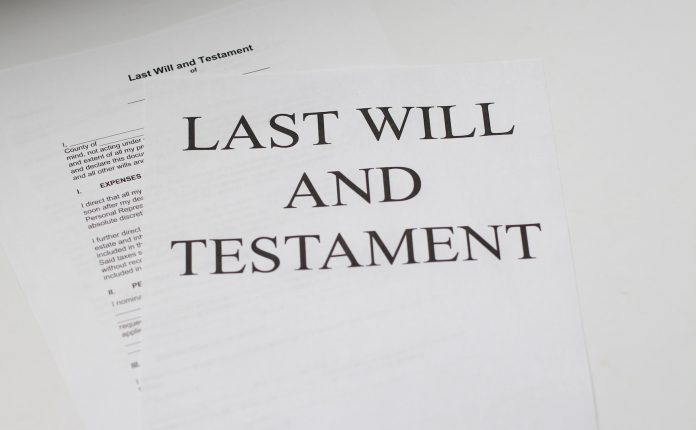Associate solicitor Lisa Perry, in law firm Blandy & Blandy’s Wills, Probate, Tax & Trusts team, explains why preparing your own Will can be false economy and the important factors to consider.
It is not uncommon for people to wonder whether they can save money by preparing their own Will, particularly when their current personal circumstances or the wider the economic situation are a driving factor.
There may be other reasons you are considering reviewing or updating your Will, for example divorce, buying property or the arrival of new children or grandchildren. You may find our earlier blog article, ‘Why is it Important to Make and Update a Will?’ helpful.
We have had many conversations with potential clients about using a pack bought from stationery shop or ordered online, to prepare their own Will. A quick internet search will produce offers of Wills for just £19.99, but what are you getting and what problems could you be storing up for the future?
Whilst it is recommended that everyone has a valid and up-to-date Will, it is particularly important if you share ownership of a property with someone who is not your husband, wife or civil partner, if you own property or other assets overseas, if you have children under 18 or other dependents, if it is possible that other family members may make a claim on the estate, and if your permanent residence is outside the UK.
Of course, when you decide to go it alone you sacrifice receiving legal advice and guidance from an experienced lawyer or adviser. Below, we have outlined some of the key issues that individuals may not take into careful consideration when preparing their own Will, some of which can have significant consequences in the future.
Inheritance Tax
When taking instructions for your Will your solicitor or adviser will consider the Inheritance Tax (IHT) implications, both during your lifetime and after your death. They will ask you questions about lifetime gifting, and they will go through details of all your assets and liabilities so that they have a clear understanding of what will be passing under the terms of your Will and whether there is a more tax efficient way to structure things.
The nil rate band, transferrable nil rate band, residence nil rate band and transferrable residence nil rate band all need careful consideration to prevent you paying IHT when this may have been avoided if the Will were structured differently.
Added Complexity in Dealing with Your Estate
You may think that your Will is straightforward but the way a Will is drafted can cause additional complications when administering the estate. If you prepare your own Will, will you give consideration to the IHT position and calculations required if you leave your estate between exempt and non-exempt beneficiaries? The way you leave your estate can result in some complicated grossing up and double grossing up calculations. This can cause the administration of your estate to put a lot of strain on your Executors and add considerably to the costs of administering the estate because professional advice will need to be sought.
Joint Assets
Did you know that your joint assets do not pass under the terms of your Will, but to the joint owner immediately on your death? This is known as the principle of survivorship. It can cause confusion and lead people to believe that more is passing to their beneficiaries than will be the case.
Is the Will Valid?
Section 9 of the Wills Act 1837 sets out the requirements for a Will to be validly executed and it is easy for people to fall foul of these requirements. As the Law Society explains: “A solicitor can help you to avoid common mistakes that could make your Will invalid.” You will not necessarily know that your Will is invalid. This is often discovered after death and your estate will then be governed by the intestacy rules, which can result in your assets passing to family members that you may not have intended.
Will the Will Be Challenged?
A homemade Will or a Will made without legal advice is more likely to be challenged and the challenge is more likely to be successful. This is particularly the case if family members who expect to receive a benefit from the Will, have been excluded or have been given less provision. Your solicitor will be considering claims against your estate when they take your instructions regarding your Will and will all that they can to safeguard your wishes so that any challenge to your Will after your death is less likely to succeed.
For further information or legal advice, please visit www.blandy.co.uk.

